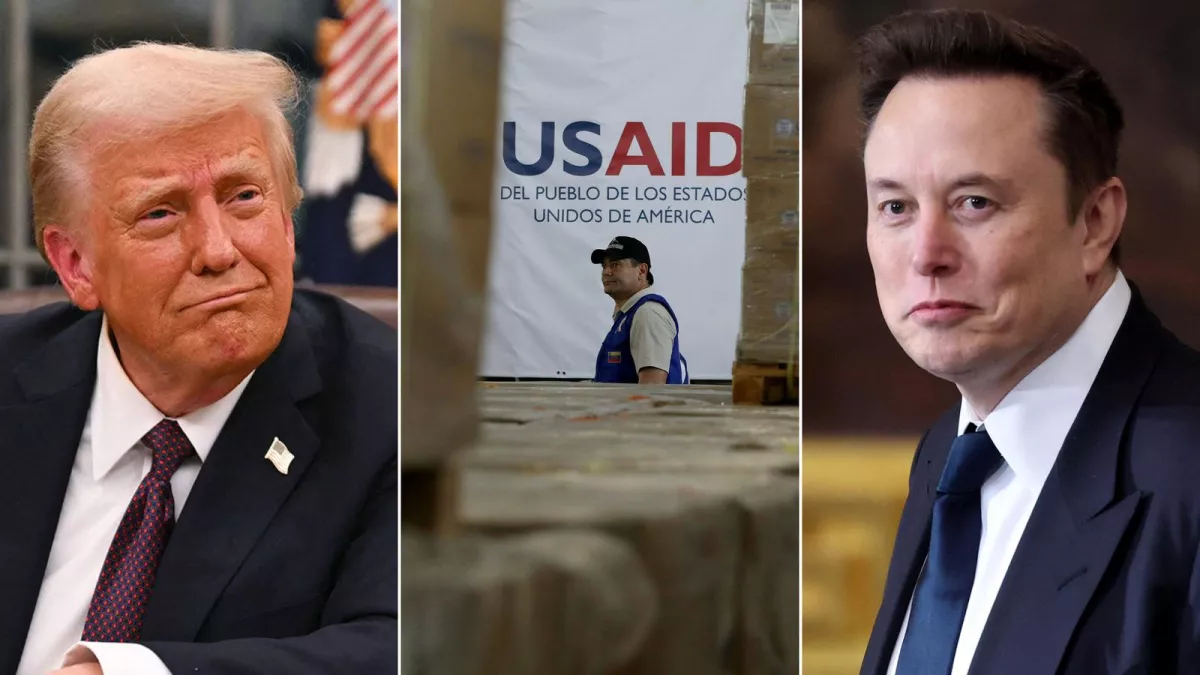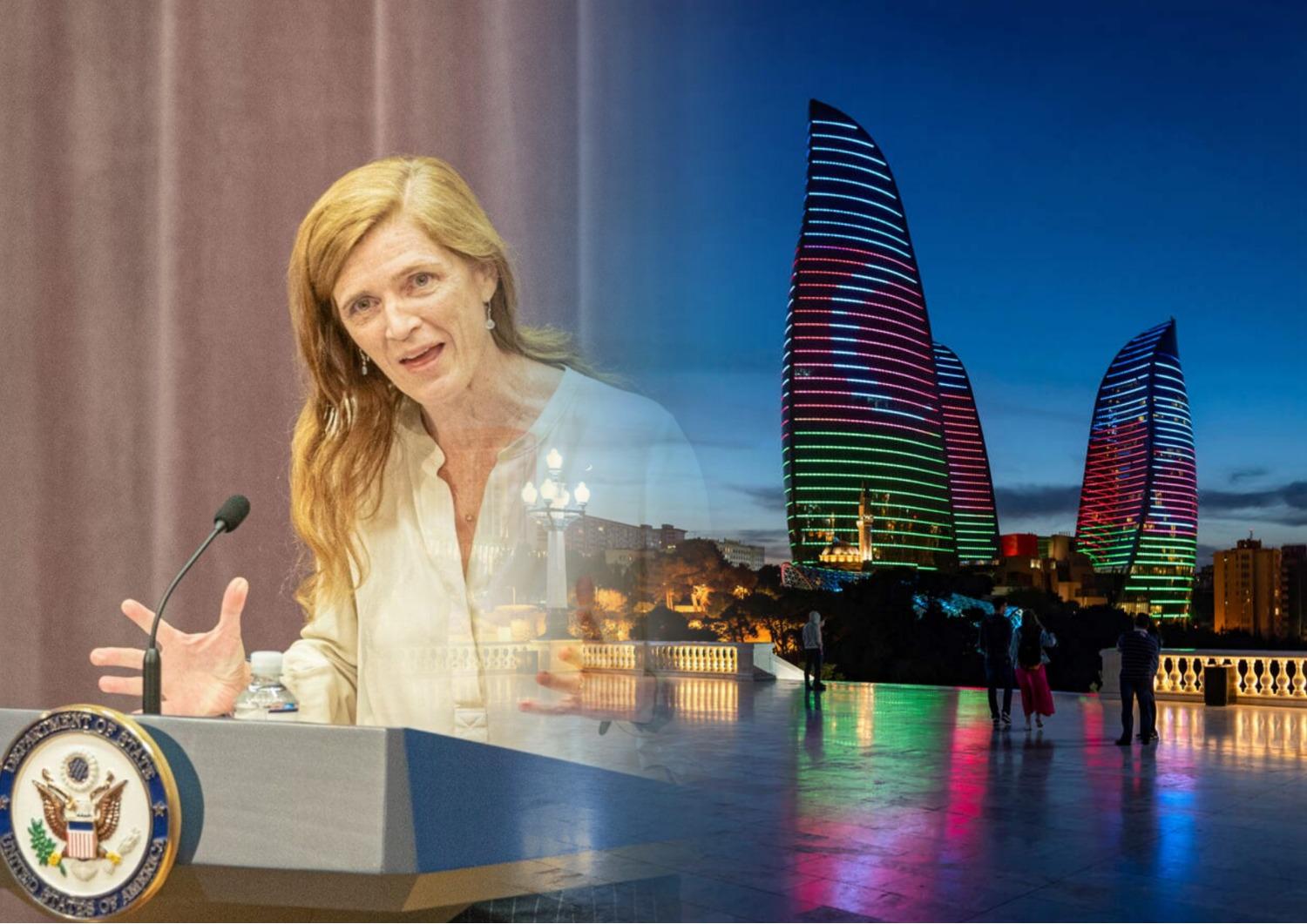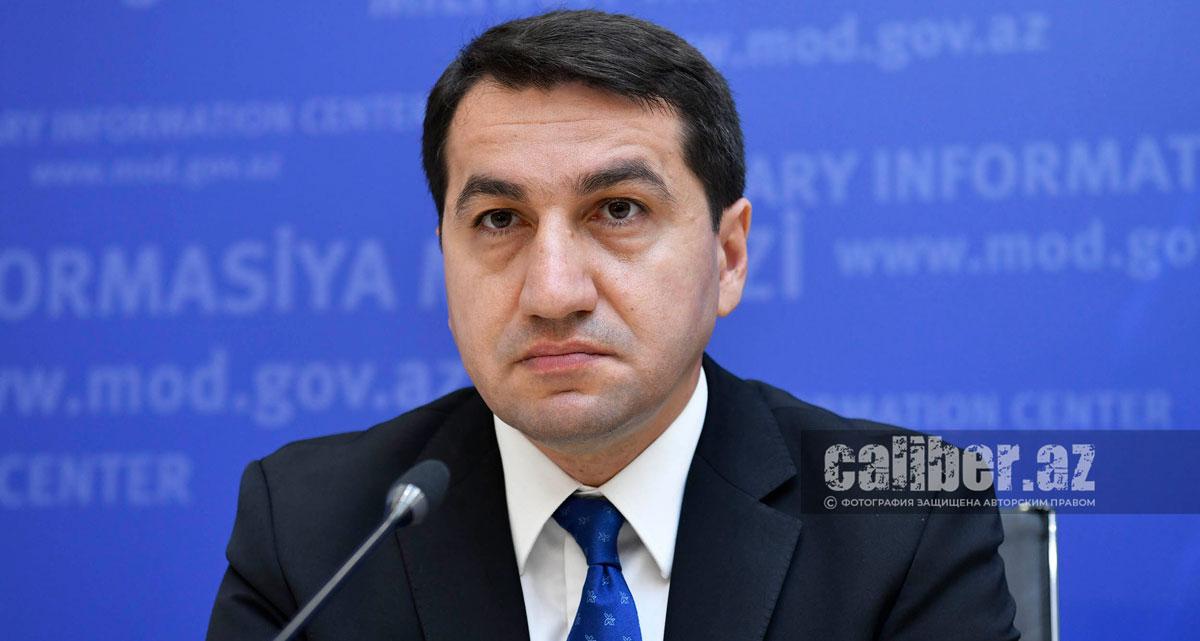Trump shuts down odious government agencies “Perestroika” in the USA
The temporary cessation of American funding for media outlets and non-governmental organizations worldwide has highlighted the effectiveness of the existing "democracy support" system from a new perspective. When this funding was provided by American "democratizers," the goal was always to create structures that would eventually be able to operate without foreign aid. It turned out that many of these organizations are completely incapable of functioning without American money. To put it mildly, they are not needed by their own societies, which is hardly surprising given that their role essentially boiled down to broadcasting the dogmas of the American liberal establishment. Moreover, the benefits of such projects for the United States have been questionable, as they often undermined the foundation for a realistic and pragmatic policy.
It’s no surprise that the new U.S. president disbanded the key government agency responsible for distributing such funding, USAID, last week. This agency and its specific leaders, such as Samantha Power, were involved in questionable activities even in the South Caucasus — including supporting Armenian separatists in Azerbaijan.
Billions of dollars in the production of "white noise"
The steadily increasing American funding for media outlets and NGOs in non-Western countries over the past few decades has led to the transformation of organizations with misleading names like the U.S. Agency for International Development (USAID) into self-sustaining entities with dubious objectives. This is how it operated for the last quarter of a century, although the destructive consequences of this agency's activities affected many, including in the U.S., with the benefits often only going to those involved in its operations. In effect, a massive network of radical and dogmatic political projects, comprador opposition, media outlets, and intellectuals was created, which, for American and other Western funds, polluted public discourse by broadcasting increasingly detached narratives. The most amusing part was watching how representatives of "civil society" or "independent media" funded by the U.S. would then feed their ideological fantasies back to American politicians — for example, by testifying at hearings in the U.S. Congress or advising American organizations. Among those who testified on Belarus, Russia, and Iran, I don't know a single representative from these countries whose activities (and even wealth) did not depend on U.S. funding.
In recent years, this approach has consistently driven American politics into a deadlock. It no longer relied on solid foundations or uncomfortable facts that could inform a realistic policy. Instead, it operated based on the repeated echoing of "independent media and NGOs" and opinions that suited the West, which, for the U.S., became indistinguishable from the genuine views of a given country's population.

The apotheosis of this degradation came with the defeats the U.S. suffered in Afghanistan and Iraq after years of occupation. These catastrophes were largely created by the "democratizers" from USAID and their "independent media-NGOs." For years, we were told about the flourishing of media outlets and NGOs, the successes in human rights advocacy, and the implementation of gender standards in Afghanistan and Iraq after the Western invasion and occupation, with the supposed only obstacle being armed opposition. Yet, this rosy picture was built on the opinions of media-NGOs funded by the U.S. and entirely dependent on the West, thus long detached from reality and focused only on the wishes and whims of their overseas benefactors (the notion of partnership in such unequal conditions was out of the question). The outcome was inevitable — as we were repeatedly told that the Afghan parliament was leading in Asia in terms of gender equality and shown Afghan women becoming mayors, the pro-American regime's facade in Kabul was falling apart before our eyes, eventually collapsing in 2021. I then asked a liberal Afghan friend, who had spent half his life benefiting from American funding and had no sympathy for the Taliban, what caused such a collapse. I expected a story about foreign state conspiracies and the brutality of the Taliban, but he simply replied, "Dollars." Dollars that funded projects that had no real chance of success, and dollars that allowed the picture to be painted through media and NGOs to justify the grants allocated.
The poverty of pseudo-liberal ideology
All of this seems absurd: how could it not have been obvious? How could the U.S. authorities present the opinions of the Iraqi or Afghan "civil society" and "independent media" as reality when it was they who funded and instructed them on what to say and what to remain silent about? It turns out that USAID was essentially passing off the echo of its own voice as the pluralism of opinions within the framework of the liberal establishment’s "agenda."
However, this was not absurdity, but ideology. The minds of the USAID functionaries, shackled by ideological and theological dogmas, gave rise to the monsters of "democratization," paid for with the blood of hundreds of thousands of Afghans, Iraqis, Ukrainians, and other non-Western peoples. Elon Musk was ridiculed for his comments about "radical Marxists" at the head of USAID. Here, it’s important to clarify the concepts, and we will see that, overall, he is right. Of course, the apologists for "democratization" at USAID or other Western foundations are not supporters of Marxism in the sense that it was understood in earlier times — the scientifically grounded study of overcoming class antagonisms or fighting for social justice. But after the student uprisings of 1968, Western, particularly American, intelligence agencies and government bodies like USAID managed to re-educate student activists and create a new breed of "Marxism" — "cultural Marxism," from which, perhaps, little remains of the original. While the founders of Marxism spent years studying dull statistics to present, though debatable, conclusions on how to restructure the economy and politics, these activists simply juggled increasingly convoluted terms and built speculative constructions. This led to the emergence of new movements such as feminism, pacifism, and the "green movements," created by these former Marxists. Over time, they moved into power, not only securing serious positions in the U.S. Democratic Party but also coming to power in Germany. Therefore, Marx, Engels, and Lenin have nothing to do with USAID, but in it and other similar organizations, you can easily find former left-wing student activists who have transformed and now follow the new dogmas of "cultural Marxism" and its derivative currents.
Recently, a vivid illustration of this emerged. On February 3, the Trump administration released examples of the absurd expenditures of USAID — from trivial matters like funding transgender operas and comics in Peru to hundreds of millions of dollars allocated to pay for "hundreds of thousands of meals" for "Al-Qaeda" fighters (a part of the Syrian opposition in the 2010s) or to fund "irrigation canals, farming equipment, and even fertilizer used to support the unprecedented poppy cultivation and heroin production in Afghanistan." These absurd examples are not comic glitches in the bureaucratic system, but a direct consequence of ideological dogmatism.
Humanitarian organization with intelligence functions
It makes sense to associate ideological dogmatism with the actions of USAID officials in subverting not only regimes hostile to the West but sometimes even those friendly to it. One must also consider the other side of USAID's activities and other similar Western agencies, which have always been used by American intelligence services. And after the early 2000s, when the American establishment began to more aggressively promote its political model around the world, USAID's scope of operations was expanded to the point where experts began talking about creating a "quasi-intelligence agency" on its base. Indeed, this led to corresponding scandals — for example, in the 2000s and 2010s in Cuba, USAID first built underground satellite communications and used HIV/AIDS workshops to gather intelligence and organize anti-government groups. Later, it assembled seemingly harmless groups on the social network "Twitter" for the purpose of organizing spontaneous protests against the government — a method that was later used to destabilize Belarus in 2020 through the anonymous Telegram channel NEXTA. Interestingly, in both cases, the supposed "democratic protests" were funded against governments (Cuba and Belarus) that were at that time actively seeking to improve relations with the U.S. and the West, but after these "protests," they were forced to turn in a different direction! So, what was the purpose of such operations from the perspective of U.S. and Western interests?

There was a sea of such activities within USAID. Both Ukrainian "Maidans" were organized with American support against presidents who were not anti-Western. They were legally elected, and their only fault was their rather cautious foreign policy and attempts to balance cooperation with different countries. Yet, they were overthrown. Ukraine was not the only country where this occurred — the first scandal surrounding USAID’s unclear activities in organizing "protests" flared up in the mid-2000s, surrounding attempts to orchestrate a revolution against Kenya's fully pro-Western government. Revolutions at that time were hardly diverse — they all followed the same script: the same political strategist, Gene Sharp, the same symbols and methods. USAID didn’t spoil its protégés with diversity: in the almost simultaneous "Maidans" of Kenya in 2005 and Ukraine in 2005, the symbol of change was made to be the orange color of an orange.
In short, the last attempt to organize a "Maidan" against Georgia's legally elected government, by sticking familiar labels to it, is yet another example of how the pseudo-liberal dogmatism of structures like USAID sometimes resulted in open destruction even against countries willing to be friends with the U.S. Notably, USAID allocated nearly $26.5 million to the "Consortium for Elections and Political Process Strengthening" (a joint venture of leading American political foundations for overseas operations) for Georgia's recent electoral campaign. Of course, the Georgian opposition eagerly painted their struggles in the right colours — supposedly, a freedom-loving civil society and independent media are leading the people against a corrupt pro-Russian regime — but all of these claims are merely propaganda in the battle for power by the losing political actors.

The situation with Azerbaijan, by the way, demonstrates the same deadlocked dogmatic approach. Despite Baku's constructive approach to cooperation with the West, especially the U.S., "independent media-NGOs" funded by relevant American structures attempted to destabilize the country. However, they found fewer and fewer opportunities to do so, and as a result, USAID cut its spending on "democracy" in Azerbaijan nearly in half over the past ten years: from almost $10 million in 2014 to just under $5 million last year. This is all the more telling when we consider that recently imprisoned Bob Menendez and USAID Administrator Samantha Power openly discussed assisting Armenian separatists in Azerbaijan as recently as 2023. Power herself is known as a close ally of Moscow oligarch and leader of Armenian nationalist formations, Ruben Vardanyan. Power's position and her team's actions led to the response from Azerbaijan’s Presidential Assistant, Hikmet Hajiyev, who, in November 2023, remarked that "there is no place for USAID operations in Azerbaijan." The country's leadership subsequently decided not to extend the framework agreement on cooperation with this agency, which was set to expire in 2024.

Moreover, it was recently revealed that official Baku sent a notice to the U.S. side stating that there were no legal grounds for USAID’s operations in Azerbaijan, and therefore, its activities in the country are being terminated.
The shift from comprador projects to genuine media
Given all the above, one must once again ask the question: what is the real purpose of USAID's existence? Liberal media outlets have spent decades trying to make us automatically respect any Western organizations whose activities are described using adjectives like "humanitarian," "democratic," "gender," etc. In recent days, global liberal elites and former recipients of American funding around the world have sharply forgotten about USAID's involvement in dubious political operations and have begun portraying it as a humanitarian agency saving the planet. They argue that Trump disregards moral and ethical considerations, as the US is the largest donor of humanitarian aid in the world, having provided more than 42% of all global humanitarian funds last year, according to the UN.
However, the US State Department almost immediately restored funding for genuinely humanitarian programs — food and medicine distribution, medical services, housing support, and assistance with minimum living standards. At the same time, however, funding for abortion services, family planning conferences, gender programs, or the "DEI ideological agenda" (Diversity, Equity, and Inclusion), transgender surgeries, or "other aid not related to saving lives" was excluded from the programs to be preserved. From the perspective of the worlds inhabited by liberal dogmatists, this is unacceptable and inhumane. But should we listen to their opinions? After all, it is precisely the policies of the current pseudo-liberal establishment that have led humanity to where it is now — on the brink of a global ecological disaster, the collapse of the global economy, and world war.
Indeed, Trump may not appear as a noble champion of peace—he's neither Mahatma Gandhi, nor Leo Tolstoy, nor Albert Schweitzer. First and foremost, he is a businessman. However, perhaps it was his focus on practical calculation and tangible results that led him to make the decision to halt the activities of pseudo-liberal structures that were not only harming the countries they promised to help but also undermining American interests—wasting billions and pushing U.S. policy into a narrow niche defined by the dogmas of liberal theology. Whatever the media and activists previously funded by American money may say about the end of "freedom of speech" and "human rights" following the cessation of these projects, the reality is quite the opposite. Trump's decision may, in fact, allow the media landscape worldwide to cleanse itself and pave the way for the emergence of real, rather than comprador, civil society.








